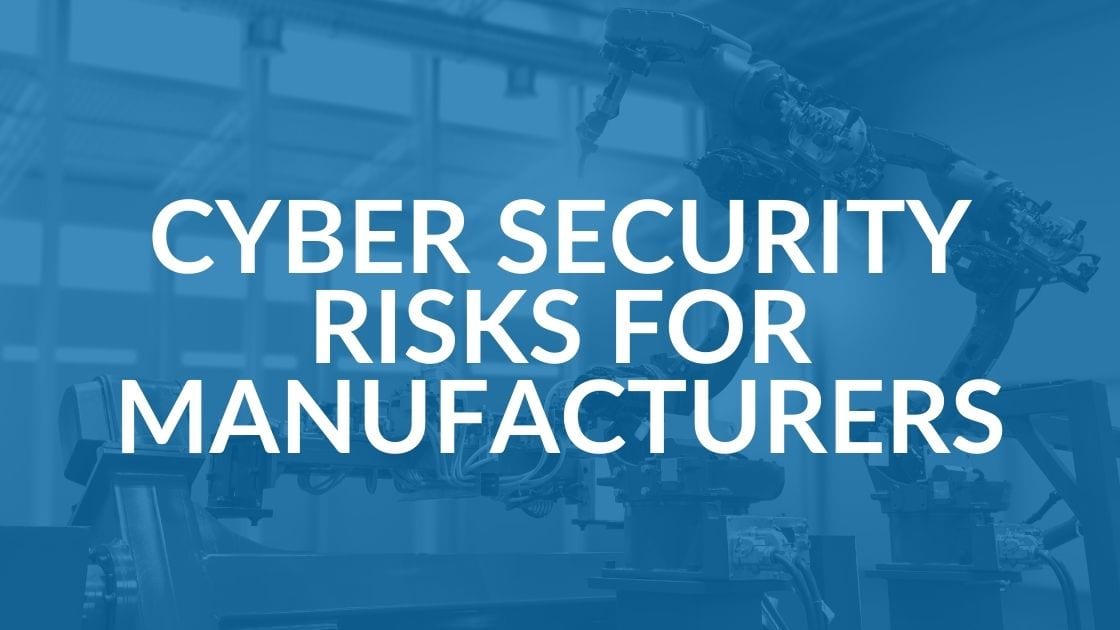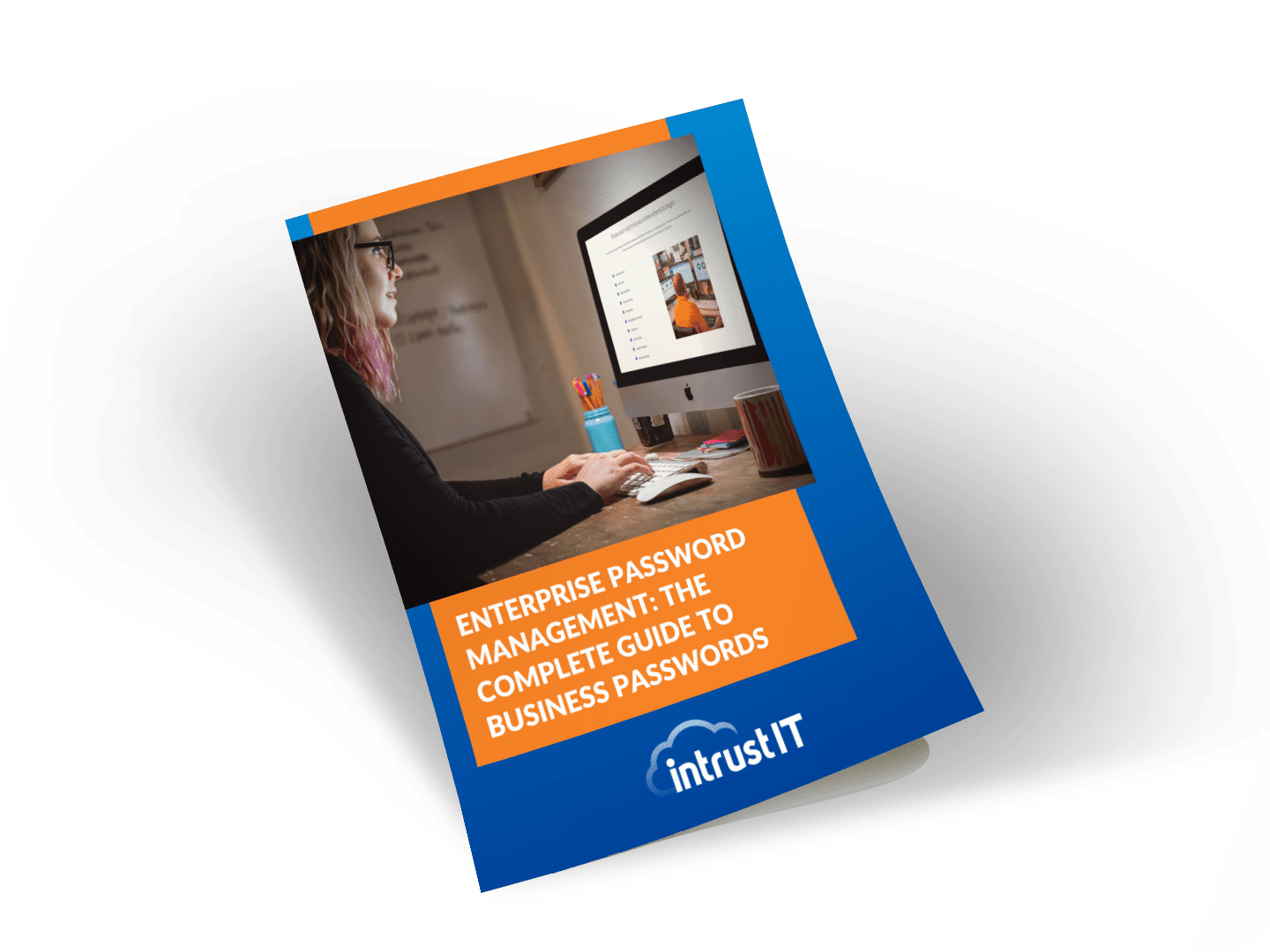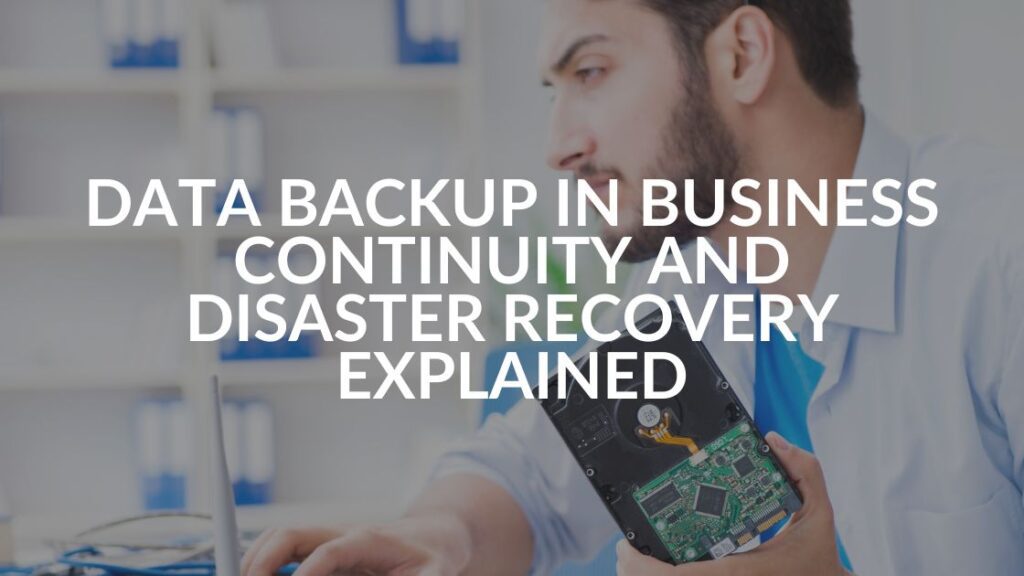Cyber Security Risks For Manufacturers: What To Look For In A Cyber Security Company

Cyber security protections are essential in the manufacturing field, possibly even more than in other industries. That’s because any threat to the way a product is made could impact product safety, and in turn, the health and safety of the people using it. Also, the manufacturing of a single device is often segmented into different companies and even countries, which means a breach for one company can have a ripple effect across multiple businesses.
As a manufacturing company, your cyber security risks include:
- Significant manufacturing downtime
- A loss of confidence in your product or components (by your business clients or the end consumer)
- A loss of manufacturing data integrity
- A drop in product quality ratings
- Compliance or regulatory issues, including fines
Of these, the impact on data integrity is possibly the single biggest threat to manufacturers.
Know what to do if attacked: Download our free Ransomware Response Checklist.
Manufacturing Data Integrity
Manufacturers rely on high integrity data to comply with regulations as well as to ensure operational quality and success. Any interruption or breach in manufacturing data can put the product or even the entire company at risk. Yet, industrial systems were often not designed with data security in mind.
Data integrity needs to be protected not just during creation and storage, but also with features that limit access to that data. Securing the transport of data between systems is also critical – whether its to remote locations, potential buyers or government regulators. The level of security needed varies depending on the type of device or component being manufactured. It can be a lot for a small to medium-sized manufacturing company to understand much less handle. That’s where partnering with a managed service provider (MSP) can help.
Cyber Security for Manufacturers
The first thing to do is recognize the security risks. Once there was only OT (operational technology) and IT (informational technology). Now there is IoT (internet of things), which involves just about any personal or household device that is capable of exchanging data over the internet. When you think about it, that’s pretty much everything, from your alarm clock (that sets the time itself) to the GPS in your car. That’s IoT.
It’s essential to have everything relating to the manufacturing of your product, up to date with cyber security best practices. That includes your equipment, procedures, and even the skills and training of your workforce.
Cyberattacks come in all forms in manufacturing as well as in other businesses: surreptitious worms, virus in emails, texts, network systems, phishing , identity theft and many others. Train your staff to recognize these threats on their computers, phones and all other devices that connect to the internet.
Partnering with a managed service provider (MSP) such as Intrust IT can mitigate those threats and help you continue to produce safe goods.
Check out more information on how Intrust can help your manufacturing company.
If you’re looking to improve the cyber security of your company (along with taking other tech headaches off your plate), contact us or book a meeting. A quick discussion, online or in person, will give you valuable insights into your IT needs and risks.
Share this Blog

Is Your Name or Birthday a Part of Your Password?
If so, you’re a part of the 59 percent of people who don’t follow proper password hygiene. More than 70 percent of passwords are used for more than one system, meaning if cybercriminals crack one, they can access a lot more accounts.
Our free Enterprise Password Management Guide will give you the best password hygiene practices to help you secure your computer and your business.
Download the Guide
Explore the Latest Trends in IT

Business Continuity Plan Template for Municipalities

Cybersecurity Strategies for Municipalities: 8 Expert Tips

Business Continuity Guide for City Officials




